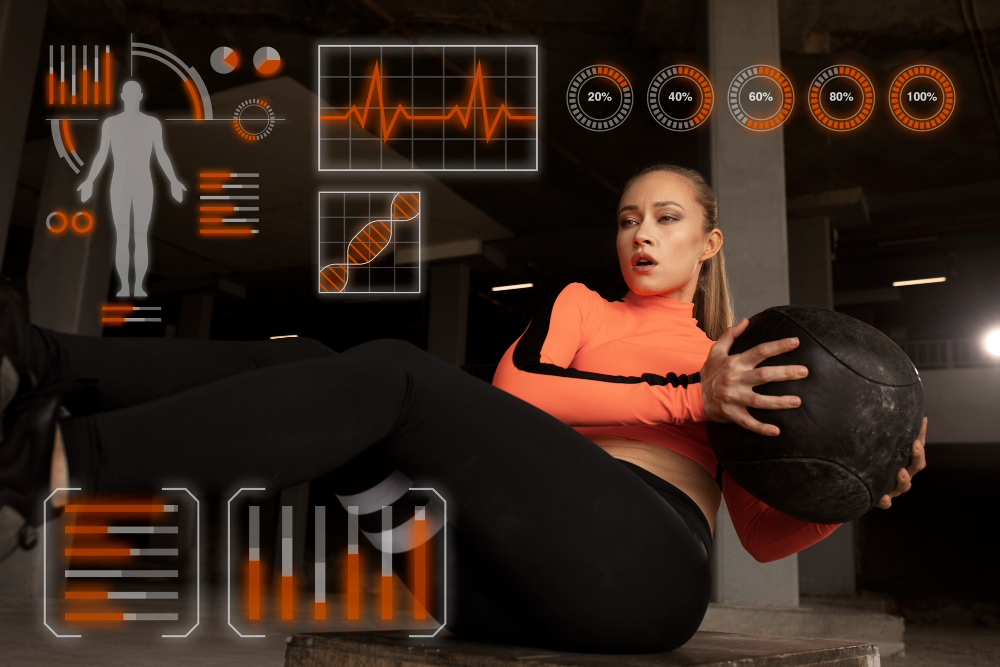The fitness world has evolved far beyond traditional gyms and personal trainers. Today, your next coach might not be human — it could be powered by artificial intelligence. As the demand for personalized, data-driven, and flexible workout solutions grows, AI fitness app development is redefining how people exercise at home.
From voice-guided workouts and motion tracking to predictive performance insights, AI-powered personal trainers are reshaping home fitness into a more intelligent, interactive, and results-driven experience.
The Rise of AI in the Fitness Revolution
The pandemic accelerated the adoption of home workouts, but what made them sustainable was technology — especially AI. Fitness brands realized that one-size-fits-all routines weren’t effective for long-term engagement. Users needed tailored experiences that adapt to their goals, fitness levels, and daily performance.
That’s where AI fitness apps come in. By combining machine learning, computer vision, and predictive analytics, these apps act as intelligent coaches — continuously analyzing user data to offer real-time feedback, progress tracking, and motivational nudges.
For developers and fitness innovators, AI fitness app development represents the perfect intersection of health, technology, and personalization.
How AI Personal Trainers Work
AI fitness apps don’t just show you what to do — they learn from what you do. Let’s break down how they function:
1. Data-Driven Personalization
AI fitness apps start by collecting user information such as age, weight, fitness goals, health conditions, and activity levels. Using this data, they design workout plans tailored to everyone's capabilities and progress rate.
2. Real-Time Feedback through Computer Vision
AI personal trainers use computer vision technology — like what powers self-driving cars — to analyze body movements in real-time. This helps ensure users maintain proper form and avoid injury.
3. Predictive Analytics for Smarter Training
Predictive AI models assess your workout data and physiological responses to anticipate performance plateaus, fatigue, or overtraining. They then adjust the intensity, rest periods, and workout frequency automatically.
Result: Users get more effective, efficient, and safe workouts — without manual intervention.
4. Voice and Chat-Based AI Coaching
Through natural language processing (NLP), AI fitness apps can interact with users conversationally. They answer fitness-related questions, track goals, and even motivate users mid-workout.
The Economic and Lifestyle Impact
AI personal trainers are not only transforming workouts but also changing the economics of the fitness industry. Traditionally, personalized fitness coaching was expensive and inaccessible to many. AI now democratizes this — offering smart, affordable alternatives to human trainers.
Here’s how AI fitness app development is creating value:
- Cost-Effective Fitness Coaching: Once developed, AI apps can scale to millions of users, reducing the per-user cost drastically.
- 24/7 Availability: AI trainers never sleep — they’re available any time, adapting to users’ routines.
- Global Accessibility: Whether someone lives in a small town or a big city, personalized training is now just a tap away.
- Continuous Improvement: AI learns from user data, getting smarter over time, unlike static workout videos or generic apps.
This new model offers sustainability not only for users but also for fitness startups and digital health brands investing in AI fitness app development.
Key Features Driving AI Fitness App Development
To create an impactful AI fitness app, developers are integrating advanced features that combine personalization, engagement, and performance analytics.
🔹 Motion Tracking
Using smartphone cameras or wearables, motion tracking helps the AI evaluate posture and form accuracy.
🔹 Health Data Integration
Integration with Apple HealthKit, Google Fit, or wearable APIs provides comprehensive user insights — from sleep to heart rate.
🔹 Adaptive Training Programs
Machine learning algorithms analyze progress and auto-adjust the difficulty level of workouts.
🔹 Nutrition and Lifestyle Insights
AI combines fitness tracking with meal recommendations, hydration reminders, and calorie management.
🔹 Social and Gamification Features
Leaderboards, streaks, and AI-driven challenges increase motivation and retention rates.
Challenges in AI Fitness App Development
While the benefits are significant, AI fitness app developers must address several challenges:
- Data Privacy and Security: AI fitness apps handle sensitive health and biometric data; strong encryption and compliance (HIPAA/GDPR) are essential.
- Accuracy of Motion Recognition: Poor camera quality or low lighting can reduce precision in posture detection.
- User Motivation: Even the smartest AI can’t replace human emotion; hence, gamification and community features become crucial for engagement.
- Continuous Training of AI Models: To stay relevant, the AI models must evolve with user data and global fitness trends.
Overcoming these challenges ensures that AI fitness apps deliver both technical reliability and emotional engagement — the ultimate formula for success.
The Future: Intelligent Fitness Ecosystems
The future of fitness is hyper-personalized, adaptive, and AI-integrated. Soon, fitness apps won’t just suggest workouts — they’ll analyze your stress levels, track recovery through sleep patterns, and design routines synced with your daily lifestyle.
As AI fitness app development continues to evolve, we’ll see a convergence of health data, predictive algorithms, and smart wearables — creating complete digital wellness ecosystems.
AI personal trainers will go beyond tracking reps; they’ll become full-fledged health companions, capable of managing nutrition, mental well-being, and preventive care.
Conclusion
The era of AI fitness app development is ushering in a new generation of personal training — one that’s smart, accessible, and tailored to individual needs. AI personal trainers are transforming home workouts into intelligent fitness journeys, empowering users to achieve their goals faster and more efficiently.
For fitness brands, startups, and digital health innovators, investing in AI-driven solutions isn’t just about keeping up with the trend — it’s about shaping the future of fitness itself.
With AI as your coach, the gym is wherever you are — and the possibilities are limitless.





Comments